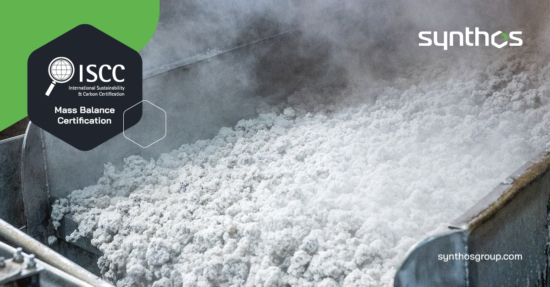Synthos, OMV sign sustainable raw materials MoU
 (Image: Synthos)
(Image: Synthos)
Synthetic rubber producer Synthos has announced the signing of a Memorandum of Understanding (MOU) with OMV, an Austrian multinational integrated oil, gas, and petrochemicals company. Under the MOU, the two firms will cooperate on the long-term supply of sustainable raw materials, with a focus on sustainable butadiene for synthetic rubber used in tyre manufacturing.
Synthos and OMV have committed themselves to a long-term cooperation on sustainable butadiene production until 2030, according to the ISCC-Plus standard, initially using palm fatty acid distillate (PFAD) and used cooking oil as feedstock. In addition, the MOU commits to future cooperation on circular butadiene derived from pyrolysis oil obtained from end-of-life tyres and underlines the transition of both companies to a more circular economy.
Rising demand for sustainable synthetic rubber
“In December 2021, we adopted our Sustainable Development Strategy, in which we commit to reduce our greenhouse gas emissions per gigajoule (GJ) by 28 per cent by 2030, reach zero carbon emissions by 2050 and produce 100 per cent sustainable products by 2030,” says Zbigniew Warmuz, chief executive officer at Synthos. “The cooperation with OMV is proof of our commitment to sustainability, which we can only achieve together with other leading companies in the value chain. Together, we can support our customers, the world’s leading tyre manufacturers, to achieve their sustainability goals in terms of net zero emissions and high-performance tyres with a lower carbon footprint.”
“The demand from leading tyre manufacturers for sustainable synthetic rubber is increasing rapidly,” adds Matteo Marchisio, vice president of Synthos Synthetic Rubber. “We are committed to delivering tailor-made solutions to best meet our customers’ needs, be it ISCC Plus certified material, bio-based rubber, or customised products that we develop exclusively with our partners.”
Synthos has already successfully received and tested sustainable butadiene produced by OMV in its steam cracker at the Burghausen refinery in Germany, which received full ISCC Plus certification in March 2022.
Goal of becoming a leading producer
“Our tie-up with Synthos clearly shows that OMV is re-inventing essentials for sustainable living,” comments Daniela Vlad, executive vice president Chemicals and Materials at OMV. “To achieve this, we have a strategic goal to become a leading European producer of sustainable feedstocks for chemicals production. The production of sustainable chemical feedstocks at our integrated refineries in Schwechat, Austria, and Burghausen will increase to approximately 300,000 tonnes by 2030.”
Synthos, which has production facilities in Germany, the Czech Republic and Poland, has achieved ISCC Plus certification for its entire portfolio of synthetic rubber products as part of its efforts to support tyre manufacturers reduce their environmental impact.





Comments